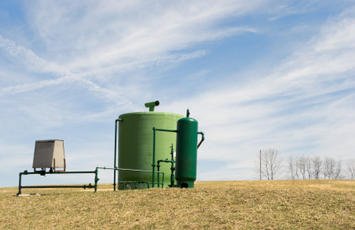
Almost 150 years after Colonel Edwin Drake drilled the country's first commercial oil well in Western Pennsylvania and transformed Pittsburgh into a manufacturing powerhouse, a huge natural gas field could be about to rescue this region's sluggish economy from its post-industrial death spiral.
The future energy boom will come from tapping an estimated 50 trillion cubic feet of recoverable natural gas that is locked into the Marcellus Shale, a huge, 400-million-year-old layer of sedimentary rock that lies about 8,000 feet beneath all of Western Pennsylvania and most of West Virginia, eastern Ohio and western New York. Worth an estimated $1 trillion, the gas from the Marcellus Shale could do for the Pittsburgh area what the smaller but similar Barnett Shale did for the Dallas-Fort Worth area in Texas – pump billions of dollars into local economies for two decades.
Rodney Waller, a vice president at the Fort Worth-based Range Resources Corp. oil and gas company, said the exact size and scale of the Marcellus play is not yet known. But he says his company – the leading gas driller in Pennsylvania with 5,400 shallow producing wells – already has invested $500 million in the project. Marcellus’s gas is costly and technologically tricky to reach.
Wells must be drilled to 7,000 or 8,000 feet, then a high-pressure mix of water, sand and chemicals is used to fracture the shale and liberate the gas molecules locked in it. Horizontal drilling allows each well to capture the gas within a 3,000- or 4,000-foot radius.
Western Pennsylvania's "Gas Rush" has already started slowly and quietly in the rural counties surrounding Pittsburgh and Allegheny County, where, since 1950, the economy has shed hundreds of thousands of manufacturing jobs and the metro population has been stuck at about 2.3 million. Thousands of landowners have leased their mineral rights to energy outfits like Range Resources. Waller said the coming gas boom could last 15 years or more, as the Barnett Shale field has in Texas. And the drilling pattern in Pennsylvania will follow the same rural-to-urban scenario it did in Texas, with the richest and most easily accessible deposits taken first and densely populated areas near Pittsburgh last. Waller says that in Dallas-Fort Worth, where gas production has escalated in the last five years, it seems everyone has been getting a cut of the Barnett Shale's riches.
For example, the homeowners’ association that runs Waller's 38-acre gated community received a $25,000-per-acre signing deal. That $950,000, plus royalties, will be shared proportionally by the association and residents. Thanks to the techno-miracle of horizontal drilling, the well will be three blocks away.
A million dollars is chicken feed compared to what the city of Fort Worth expects to get from gas leases and royalties over the next 20 years – nearly $1 billion. For the right to drill for gas under its 18,460 acres, the Dallas-Fort Worth International Airport alone received a check in 2006 from Chesapeake Energy for $185 million – not to mention the additional 25 percent of all royalties.
Meanwhile, Arlington, the growing community of 367,000 between Fort Worth and Dallas, has already banked $50 million in signing bonuses for leasing 4,300 of its acres, according to city real estate manager Roger Venables. Signing bonuses in Arlington – $75 per acre in 2005 – were $30,000 in July, said Venables, who estimates that the city's nearly 7,000 acres will ultimately generate about $850 million. He said most of that gas revenue will go into an endowment and be distributed through community grants to improve the quality of life in Arlington.
In Washington County south of Pittsburgh, where Range Resources drilled a test well in 2002 that proved the Marcellus Shale contained enough gas to be profitable, the early returns are more modest. Hundreds of landowners who own the mineral rights beneath their property have penned "signing bonuses" that have now risen to $4,000 per acre. They also will get at least 12.5 percent of production royalties.
Washington County's government has already scored a small benefit: Planning Department Director Lisa Cessna says the county was paid an upfront bonus of $17,000 from Range Resources in 2002 to explore for gas in 2,700-acre Cross Creek Park. Plus, it gets a now laughably low price of $10 per acre per year. So far, the county has realized about $60,000 in gas-related revenue, but royalty checks will soon sweeten that figure, as will a deal the county is seeking for its other major land holding, 2,289-acre Mingo Park.
Whoever wins the right to drill at Mingo must pay Washington County at least $4,000 an acre, fork over at least 15 percent in royalties and abide by strict environmental regulations, Cessna said. Bids will be opened Nov. 4.
By the end of the year, Range Resources will finally see its first commercial flow of gas from the Marcellus from three wells operating in Cross Creek Park, Waller said last week. As for the cash-starved governments of the City of Pittsburgh and Allegheny County, which controls 9,300 acres of land at Pittsburgh's two airports, they too will most likely benefit handsomely from the Marcellus gas play.
But they'll have to be patient. In Texas, the development of the Barnett Shale took 15 years to spread from the hinterland to downtown Fort Worth, where drilling is occurring now.












